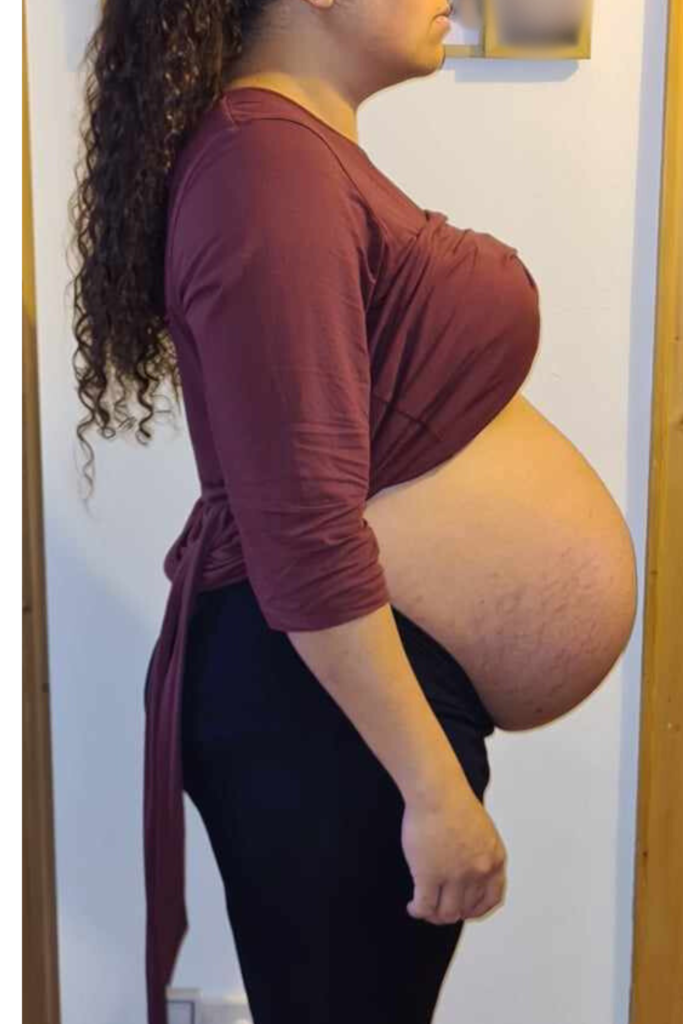The journey through pregnancy is filled with excitement and anticipation, however when you near the end, it can often be a time of uncertainty and apprehension – especially when it comes to knowing the signs of labor. As the due date approaches, many women wonder what the signs of labor are and how to differentiate between early labor, false labor (Braxton Hicks contractions) and active labor, as well as when is the right time to head to the hospital.
Early Signs of Labor
Your body will give several hints that labor is near, sometimes even days or weeks before active labor begins. These signs are not always an indication that labor is imminent, but they can signal that the body is preparing for delivery.
- Lightening (Baby “Drops”)
This refers to the baby moving lower into the pelvis in preparation for birth. You may notice that it’s easier to breathe as the pressure on your diaphragm decreases, but there may be increased pressure on your bladder, causing more frequent urination and possibly more waddling. - Increased Vaginal Discharge
A thick, mucus-like discharge called the mucus plug may pass in the days or hours leading up to labor. This is the body’s way of sealing the cervix to protect the baby from infection. When it passes, it’s a sign that the cervix is starting to dilate and efface (thin out). - Backache and Cramping
You may experience a dull ache in your lower back or mild cramps similar to menstrual pain. These can occur as your body prepares for labor, but alone, they are not necessarily a sign of active labor. - Nesting Instinct
Many women experience a burst of energy and feel the urge to clean and organize their home in the days before labor. This surge is often referred to as the “nesting instinct.” - Diarrhea or Nausea
Some women experience digestive changes, such as diarrhea or nausea, as labor approaches. Hormonal shifts during labor preparation may affect the digestive system.

When to Go to the Hospital
Determining the right time to go to the hospital can be tricky, especially for first-time moms. Here are some guidelines:
- Contractions are regular and close together: The general rule for most first-time pregnancies is the 5-1-1 rule:
- Contractions are 5 minutes apart,
- Each contraction lasts 1 minute,
- This pattern continues for at least 1 hour.
If you are experiencing this consistent pattern, it’s time to head to the hospital.
- Water breaks: If your water breaks (either as a gush or a slow trickle of fluid), you should contact your healthcare provider for advice. Your waters breaking does not always mean you need to head to hospital, if you wish to labor at home for longer you often can, but best to check with your health care provider to get the all clear. Amniotic fluid is clear and odorless, and its release signals that labor may start soon, if it hasn’t already. However, there can be an increased risk of infection to mother and baby if waters have been broken for 24 hours and labor does not progress.
- Bleeding: If you notice bright red blood (more than just spotting), this could be a sign of complications such as placental abruption, and you should seek immediate medical attention.
- Decreased fetal movement: If you notice a significant reduction in your baby’s movements, it’s important to contact your healthcare provider immediately.
- Severe pain or other unusual symptoms: If you experience intense pain that doesn’t feel like typical contractions, severe headaches, visual disturbances, or swelling, seek medical attention immediately, as these could be signs of complications like preeclampsia.
Trust Your Instincts
It’s important to remember that every labor is unique, and not all women experience the same signs. If you’re unsure whether you’re in labor or have concerns about your symptoms, don’t hesitate to call your doctor or midwife. They will offer guidance, and if necessary, advise you to come in for an evaluation.
Labor is an exciting and unpredictable process, but understanding the signs and symptoms can help you feel more prepared and confident as you get ready to meet your baby. Trust your body and instincts—and don’t be afraid to ask for support when you need it. Labor can also be frightening for some as it is a totally new experience – staying calm is key to helping it go as smoothly as possible.
Seek immediate medical advice from your midwife or doctor if (according to the UK NHS):
- your waters break
- you have vaginal bleeding
- your baby is moving less than usual
- you’re less than 37 weeks pregnant and think you might be in labor
- any of your contractions last longer than 2 minutes
- you’re having 6 or more contractions every 10 minutes
These signs mean you need to see a midwife or doctor. Do not wait until the next day – call immediately, even if it’s the middle of the night.


